Thyme tincture
The ideal ally in maintaining the health of the respiratory and gastrointestinal tract
Thyme tincture provides a rich supply of nutrients and bioactive substances with antibiotic, antiseptic, antimicrobial, antispastic, expectorant, stomachic, carminative, choleretic, cholagogue, diuretic, anthelmintic, analgesic, healing, anti-inflammatory and antioxidant effect.
Servings: 100 servings
Approximately 200 ml of thyme tincture, ie ~ 100 servings / dose or administration (1 serving = 2ml = 40 drops = ~ 1/2 teaspoon)
Ingredients
Materials
- - glass container (jar)
- - scissors
Preparation
 The thyme twigs will be washed under running water, shaken well from the excess water and left to drain for 15 minutes on a paper towel. Both fresh thyme and dried thyme (the aerial part of the plant) can be used.
The thyme twigs will be washed under running water, shaken well from the excess water and left to drain for 15 minutes on a paper towel. Both fresh thyme and dried thyme (the aerial part of the plant) can be used. Thyme can be used in tincture both whole and shredded. I chose to use it whole.
Thyme can be used in tincture both whole and shredded. I chose to use it whole.
Cut the thyme sprigs with a pair of scissors so that they fit into the container.
We place them in the container with the tip down.
⚠ You can choose to grind the thyme with a grinder if it is well dried or chop it with a knife if it is fresh. Pour the alcohol into the container over the thyme sprigs so that they are covered until the container is full.
Pour the alcohol into the container over the thyme sprigs so that they are covered until the container is full. The container (jar) should be sealed (with a lid or with a foil and an elastic band) and left to macerate for at least 2 weeks, in a dark and ventilated place. During maceration it is recommended to shake the jar at least once a day.
The container (jar) should be sealed (with a lid or with a foil and an elastic band) and left to macerate for at least 2 weeks, in a dark and ventilated place. During maceration it is recommended to shake the jar at least once a day.
→ Finally, if ground / chopped thyme has been used, the tincture will be strained / filtered with a gauze or fine sieve.
→ If I have used whole twigs (my case), filtering the tincture is no longer necessary and you can leave the thyme twigs in the container as you consume the tincture.
⚠ However, it is recommended to keep the tincture in small, dark, drip-colored bottles to avoid contact with air and light.
⚠ For a full clarification, after the first filtration, the tincture can be left to decant in the refrigerator for another 3-7 days, then the clear part will be poured into small, dark containers, possibly with a drip.
Administration
✔ Internal: 20-60 drops (~ 1-3 ml) 3-4 times a day, diluted in a little boiled and cooled water (~ 50 ml), 30 minutes before meals. The maximum dose of 60 drops is the equivalent of 3 ml of tincture, ie ~ half a teaspoon, a teaspoon of boiling ~ 5 ml.
In more severe respiratory conditions, such as bronchitis / cough, the dose may be increased to 6 times a day, but not for more than 10 days.
Cures of a maximum of 14 days are generally recommended. Being an alcoholic solution, great care must be taken not to interact with other medications or other conditions. If more cures are needed, breaks between cures of 1-2 weeks are recommended.
✔ External: thyme tincture can be used as such or diluted with distilled water (boiled and cooled), applied to the skin by massage or to soak compresses and apply them on affected areas.
To prevent infection, some lesions can be washed with thyme tincture diluted in distilled water, being a good disinfectant.
For fungal nail or toe fungus, use pure (undiluted) thyme tincture: soak a gauze pad, apply to the affected area, wrap in nylon (cling film) to prevent evaporation and leave for at least 2 hours (or even overnight) to act.
⚠ Dilution of thyme tincture can be done both in distilled water (boiled and cooled) and in chilled thyme infusion.
It is recommended to shake the tincture before use.
Observations
Stoarge and validity:
- it is recommended to keep in small, dark bottles, possibly with a drip, in ventilated places, protected from light;
- consumption is recommended within 2 years from the date of preparation.
Effects and benefits
Thyme tincture has the following action:
- antibiotic;
- antiseptic / antimicrobial / disinfectant;
- antifungal;
- antispasmodic;
- expectorant;
- stomach (promotes gastric digestion);
- carminative (favors the expulsion of intestinal gases);
- choleretic (stimulates bile secretion of the liver);
- cholagogue (favors the evacuation of the bile into the duodenum);
- diuretic;
- anthelmintic (fights the development of intestinal worms);
- healing;
- analgesic / analgesic;
- anti-inflammatory;
- antioxidant;
Recommended in diseases of the digestive system (gastrointestinal tract):
- treats bloating;
- removes intestinal fermentation, abdominal discomfort and abdominal tension;
- stimulates digestion;
- protects the intestinal mucosa;
- helps eliminate worms and intestinal parasites (giardia / lamblia, roundworms, pinworms);
- helps in dyspeptic disorders (indigestion);
- helps in digestive disorders such as: fermentation colitis, enterocolitis, angiocolitis;
Recommended for respiratory disorders:
- stimulates lung function;
- helps relieve respiratory viruses, acute bronchitis;
- laryngitis, pharyngitis;
- helps relieve cough;
- helps to treat colds, reduce fever;
Other:
- helps to treat fungal infections located on the nails (onychomycosis) and on the toes (athlete's foot disease);
- internal disinfectant including urinary tract;
- has a calming and relaxing effect on the muscles as a result of physical exertion;
- helps in skin ulcers, wounds, itching, seborrheic dermatosis, eczema, shingles, trichophytia;
Side effects
- at high doses, nausea, vomiting and nervous excitement may occur;
Contraindications
- contraindicated for those with allergy to thyme and honey;
- thyme may increase the risk of bleeding in people taking blood thinners (aspirin, warfarin);
- thyme should be avoided by people suffering from hormonal diseases;
- contraindicated for pregnant and lactating women;
- contraindicated for those with irritable bowel disease;
- contraindicated for those with high blood pressure, mental hyperexcitability;
- contraindicated for those with liver failure;
- contraindicated in pancreatic insufficiency;
FAQ 💡❓
Why is thyme tincture considered one of the most effective natural remedies?
➡️ Because the 50% alcohol extract concentrates thymol and carvacrol, compounds with strong antiseptic, antifungal, anti-inflammatory and digestive effects. This makes the tincture act quickly both internally and externally.
What ingredients are needed to prepare the tincture?
➡️ You only need thyme (fresh or dried), 50% food-grade alcohol and a glass jar. These simple ingredients allow efficient extraction of volatile oils.
How do you properly prepare thyme tincture at home?
➡️ Wash and dry the plant, chop it coarsely and completely cover it with alcohol. Keep the jar in a dark place for at least 14 days, shaking it daily. Strain and store in dark glass bottles.
How is thyme tincture taken for bloating and indigestion?
➡️ Take 20–60 drops (1–3 ml) 3–4 times a day, diluted in boiled and cooled water, 30 minutes before meals. It improves digestion, reduces fermentation and eases spasms.
Does thyme tincture help with intestinal parasites?
➡️ Yes. Thyme has anti-parasitic action and may help eliminate pinworms, giardia and other intestinal parasites. It is used in short, controlled cures.
Can thyme tincture help with cough, bronchitis and respiratory infections?
➡️ Yes. Its expectorant and antiseptic effects support the lungs, reduce mucus and calm persistent cough. Doses should be spread throughout the day and not used for more than 10 consecutive days due to alcohol content.
How is it applied externally for nail fungus and athlete’s foot?
➡️ Apply undiluted tincture on a compress placed directly on the affected area, for 2–8 hours daily. Its antifungal action helps reduce fungal growth and supports skin regeneration.
Can the tincture be used for muscle pain or eczema?
➡️ Yes. When diluted and applied as compresses or massage, it offers anti-inflammatory, soothing and healing effects for muscle tension, irritations, itching and minor skin lesions.
How long does thyme tincture last?
➡️ When stored in dark glass bottles, protected from heat and light, it maintains its properties for about 2 years.
What side effects can occur?
➡️ Excessive use may cause nausea, vomiting or nervous agitation. These reactions appear mainly when recommended doses are exceeded or when the tincture is taken for too long.
Who should avoid using thyme tincture?
➡️ It is contraindicated for people allergic to thyme, those with hypertension, liver or pancreatic problems, blood-clotting disorders, irritable bowel, people on anticoagulant therapy, as well as pregnant or breastfeeding women.
Is thyme tincture suitable for children?
➡️ No. Because it contains alcohol, it is not recommended for children. Infusion or syrup of thyme—alcohol-free alternatives—are preferable for young ages.
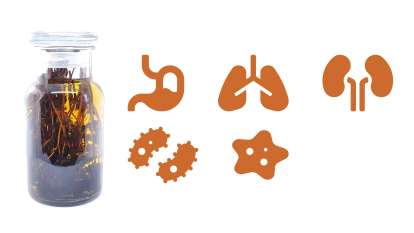
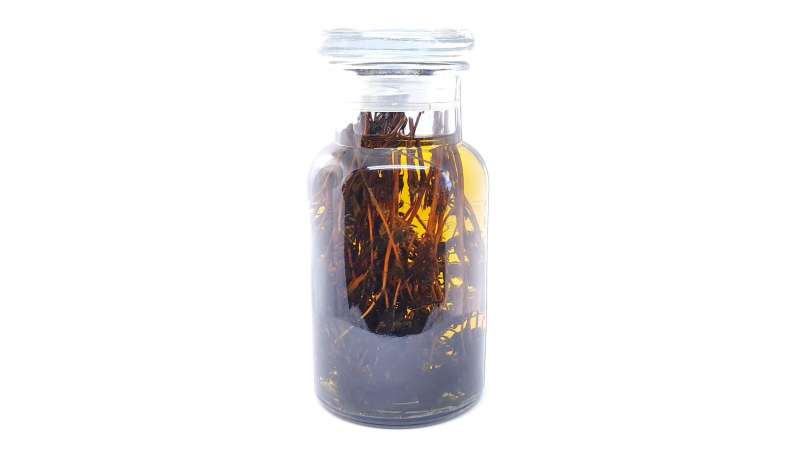
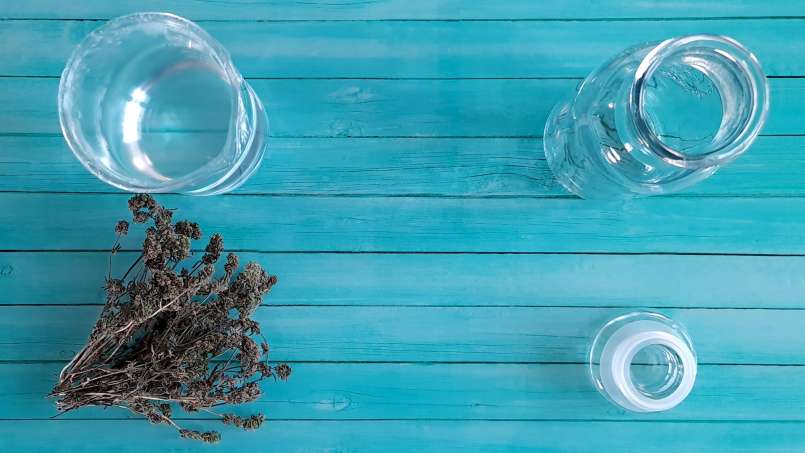
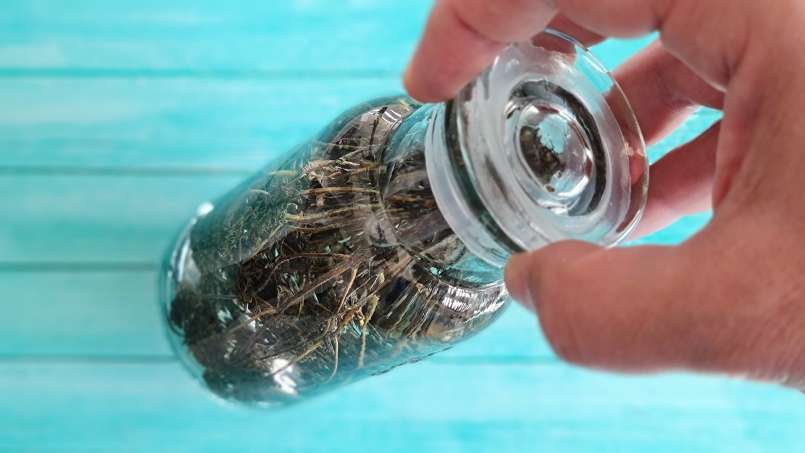
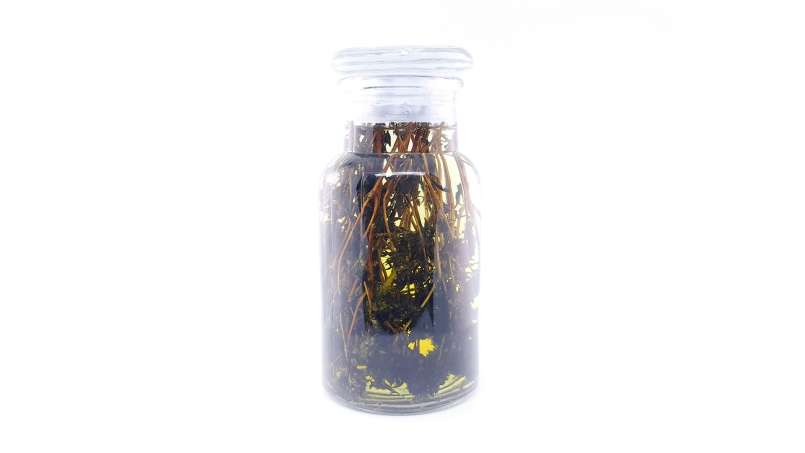
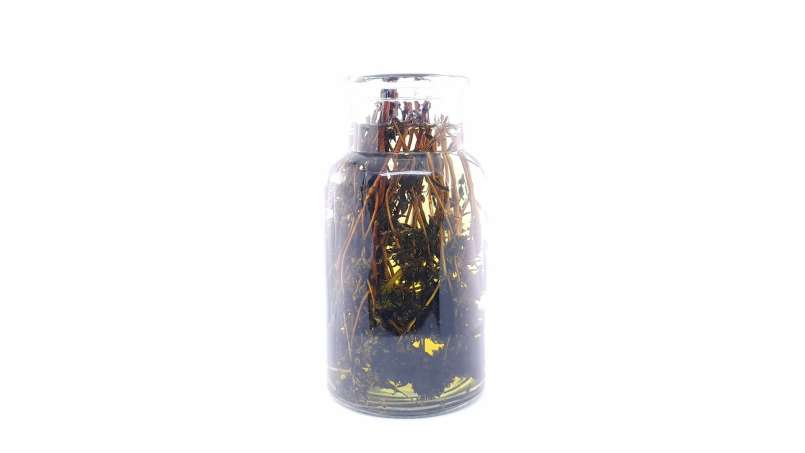
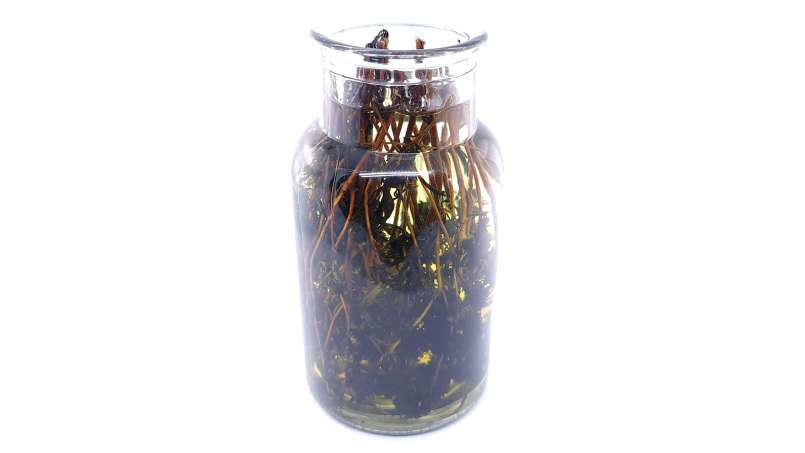
Comments